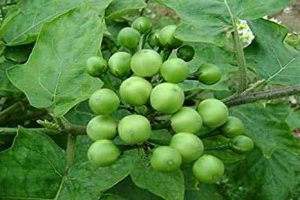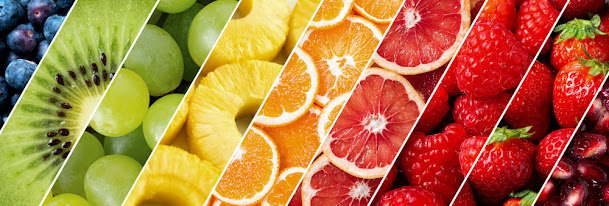Comparing Organic vs. Conventional Vegetables: What You Need to Know Before Buying Online in Chennai
In the
vibrant city of Chennai, where culinary traditions meet modern lifestyles, the
choice between organic and conventional vegetables has become a pressing matter
for many consumers. With the rise of organic
vegetables online Chennai, understanding the distinctions between these two
types of produce is crucial. This comprehensive guide delves into the quality,
nutrition, and price differences between organic and conventional vegetables,
helping you make an informed decision.
Introduction
The quest
for healthy eating often leads to the debate: organic vs. conventional
vegetables. This topic is particularly relevant in Chennai, a city known for
its rich food culture and increasing health consciousness. As online grocery
shopping becomes more prevalent, understanding the implications of choosing organic
over conventional vegetables, or vice versa, is essential for both your health
and wallet.
Understanding Organic
Vegetables
Organic
vegetables are grown without synthetic pesticides, fertilizers, or genetically
modified organisms (GMOs). Instead, organic farming practices emphasize the use
of natural substances and physical, mechanical, or biologically based farming
methods to the fullest extent possible. These methods aim to enhance soil and
water quality, reduce pollution, provide safe, healthy livestock habitats,
enable natural livestock behavior, and promote a self-sustaining cycle of
resources on a farm.
Quality of Organic
Vegetables
The
quality of organic vegetables is often highlighted by their natural cultivation
processes. Organic farming avoids the use of synthetic chemicals, which can
lead to a more natural growth process. This can result in vegetables that are
fresher and sometimes tastier, as they are allowed to grow in a more natural
environment. Moreover, organic vegetables often have fewer pesticide residues,
which is a significant quality factor for many health-conscious consumers.
Nutritional Value of
Organic Vegetables
The
nutritional content of organic vegetables is a point of considerable debate.
Some studies suggest that organic vegetables may contain higher levels of
certain nutrients, such as antioxidants, vitamins, and minerals, compared to
their conventional counterparts. However, the differences are not always
significant. The absence of synthetic pesticides and fertilizers, however,
contributes to a perception of better overall health benefits.
Price of Organic
Vegetables
One of the
most noticeable differences between organic and conventional vegetables is the
price. Organic vegetables tend to be more expensive due to the more
labor-intensive farming practices, lower crop yields, and certification
processes required to label produce as organic. When buying online in Chennai,
these costs can be exacerbated by shipping and handling fees, making organic
vegetables a premium choice.
Understanding
Conventional Vegetables
Conventional
vegetables are grown using modern agricultural practices that may include the
use of synthetic chemicals, GMOs, and other advanced farming techniques to
enhance growth and productivity. These methods aim to maximize yield and ensure
a steady supply of affordable vegetables.
Quality of Conventional Vegetables
Conventional
vegetables are often criticized for their use of synthetic pesticides and
fertilizers. However, these practices also allow for consistent quality and
higher productivity. Modern agricultural methods enable farmers to grow
vegetables that are uniform in size, color, and texture, which can appeal to
many consumers looking for consistency in their produce.
Nutritional Value of Conventional Vegetables
While
conventional vegetables might not boast the same nutritional reputation as Buy
Organic Veggies Online Chennai, they still offer essential vitamins,
minerals, and fiber. Advances in agricultural science have enabled conventional
farming to produce nutrient-dense vegetables, though some argue that the
synthetic chemicals used can potentially diminish these benefits.
Price of Conventional Vegetables
The
primary advantage of conventional vegetables is their affordability.
Large-scale farming and the use of synthetic aids allow for higher yields and
lower costs, making conventional vegetables more accessible to a broader
population. This price advantage is particularly noticeable when shopping
online, as the savings from large-scale production can be passed on to the
consumer.
Comparing Quality:
Organic vs. Conventional Vegetables
When
comparing the quality of organic and conventional vegetables, it’s essential to
consider factors like taste, freshness, and pesticide residue. Organic
vegetables often have an edge in taste and freshness due to their natural
growing conditions. However, conventional vegetables benefit from advanced
agricultural practices that can result in aesthetically appealing and
consistently available produce.
Taste and Freshness: Many consumers report that organic
vegetables taste better and are fresher. This can be attributed to the absence of
synthetic chemicals and the more natural farming methods used. However, taste
is subjective, and some may not notice a significant difference.
Pesticide Residue: Organic vegetables generally
contain fewer pesticide residues, which is a significant quality consideration
for many health-conscious consumers. Conventional vegetables, while still safe
to eat within regulated limits, may have higher pesticide residues due to the
synthetic chemicals used in their production.
Comparing Nutrition:
Organic vs. Conventional Vegetables
The
nutritional debate between organic and conventional vegetables is ongoing.
While some studies suggest organic vegetables contain higher levels of certain
nutrients, the overall differences may not be substantial enough to impact dietary
choices significantly.
Antioxidants and Vitamins: Organic vegetables are often touted
for their higher antioxidant and vitamin content. For example, studies have
shown that organic tomatoes can have higher levels of antioxidants like
polyphenols compared to conventional ones.
Minerals: Some research indicates that
organic vegetables may have higher mineral content, such as magnesium and iron.
However, the variations are often small and can depend on multiple factors
including soil health and farming practices.
Comparing Price: Organic
vs. Conventional Vegetables
Price is a
major factor influencing consumer choice. Organic vegetables are typically more
expensive due to the labor-intensive farming practices and certification costs.
When buying online in Chennai, the price gap can widen due to shipping and
handling fees.
Cost of Organic Vegetables: The higher cost of organic
vegetables can be justified by their farming practices and health benefits.
Consumers willing to pay a premium for organic produce often do so for the
perceived health benefits and environmental impact.
Cost of Conventional Vegetables: Conventional vegetables are more
affordable, making them accessible to a wider audience. The lower price point
is achieved through large-scale farming and the use of synthetic aids that
increase yield and reduce costs.
Conclusion
The choice
between organic and conventional vegetables involves various factors, including
quality, nutrition, price, and environmental impact. In Chennai, both options
are readily available through online platforms, catering to diverse consumer
preferences. While organic
vegetables online Chennai offer the benefits of reduced pesticide exposure
and potentially higher nutrient levels, they come at a higher cost.
Conventional vegetables, on the other hand, provide affordability and
consistent quality. Ultimately, the decision depends on individual priorities
and values. By understanding the differences and making informed choices,
consumers in Chennai can enjoy the best of both worlds.



Comments
Post a Comment